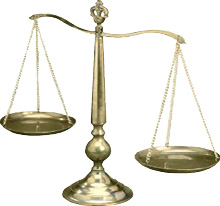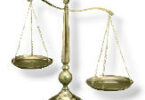By Yana A. St. Clair, Esq.
With the world up in turmoil, the future of privacy is looking grim.

For the last eight issues of the Magazine we have been discussing the topic of privacy, and more specifically, data privacy and the collection of personal information on individuals. We examined how different parts of the world address these issues and what legislatures, if any, they have in effect for the protection of personal data. Then we asked ourselves whether individuals even wish to remain private in the first place, or perhaps in our ever-changing global society people might actually be going out of their way to be as public as possible.
In the midst of all this, along came 2020 and flipped the world as we knew it completely upside down. As the Covid-19 pandemic spread across the globe, along with it came a slew of uncertainties, questions, and all in all panic and fear. While many months, or what feels like years, have passed since we last met, as I sit here today trying to wrap my head around where we stand legally in the New World of pandemic panic, it seems that not just my dear state of California, but the entire world remains in just as much, if not more, uncertainty and confusion.
As I think back to March when all of this really hit the fan if you will, experts had projections and figures, and promises of a solid plan which, if followed, would hopefully return our existence back to normal, in a reasonable amount of time. As we are all too well aware this didn’t happen, and here we are, still, today. Yet while not a whole lot has become clearer on where our future stands, one thing we undoubtedly cannot overlook is how much our dear friend personal privacy seems to have suffered as a result.
As soon as pandemic panic took hold of the world, almost overnight millions of terrified people around the world succumbed, quite understandably, to fear, and frantically began searching for some solution, aid or just hope in general. All the tech giants naturally jumped at this opportunity, and people eagerly began to download tracking Apps which would follow their every move and warn them if they approach an “infection hot spot,” or alert them of infected individuals nearby. Soon municipalities were encouraging residents to report their neighbors in the event of a stay at home order violation. Some jurisdictions were so overwhelmed by private citizens jumping at the opportunity to turn folks over to the authorities, that police departments actually had to warn residents to stop clogging up the emergency hotline.
While privacy was clearly placed on the backburner as an increasing number of people saw the clear invasion of their personal space as a small price to pay in the scheme of things, a far more delicate intrusion began to creep in as time rolled by.
As governments around the world began to implement stay at home orders, and subsequently re-opening related restrictions, almost universally the wearing of face masks were mandated, or at the very least highly encouraged. While some parts of the world meticulously and unanimously complied with these requirements, in the United States for example, the subject became so heated, that it virtually led to a massive social divide among the general population, arguably even along political party lines.
Many individuals oppose the mandatory face masks on sheer personal liberty grounds, likely rooted in a fairly vocal distrust of the scientific certainty substantiating the degree of efficacy, if any, that masks provide for the prevention or spread of the virus.
However, a notable number of people are legitimately concerned about the medical repercussions of wearing a mask which completely covers their mouth and nose for prolonged periods of time, especially in areas with extreme heat, or while engaged in strenuous physical activity.
And this is where the law seems to utterly fail us in providing any concrete answers as to what our rights are, particularly with respect to medical privacy. We are virtually in the dark regarding who can force us to divulge confidential, otherwise vehemently protected personal medical information, and what punishments we may anticipate if we fail to comply.
And it’s not for failure to delve into the language of the various ordinances, and search for their legal grounds and justifications that I can’t give you an answer. But the fact of the matter is, as soon as this crippling disaster took hold of the world, FEAR became King, and all law, reason, logic, rights and freedoms, were placed in a cell, given a mask and a face shield, and forced to stand at least six feet apart from each other. Thus, in closing, I sadly must admit that the law leaves us blind with respect to our current privacy rights. So, until next time! When this whole nightmare will hopefully be far behind us…
Biography
Yana is an American attorney licensed to practice in all State and Federal courts of California. Yana holds a Bachelor of Arts Degree in Political Science specializing in International Relations from UCLA, the Degree of Juris Doctor from Loyola Law School, and a Master of Business Administration Degree from Ashford University. Since the beginning of her undergraduate studies, Yana has been involved in various aspects of the field of Electrical Engineering, where she employs her business and legal knowledge to consulting and advising businesses and individuals on relevant topics of concern. Yana also serves as Editor for PACWorld magazine, having been with the publication since its inception. As an attorney, Yana specializes in criminal defense, where she devotes her talents and expertise to fighting for her clients’ rights and freedom.



